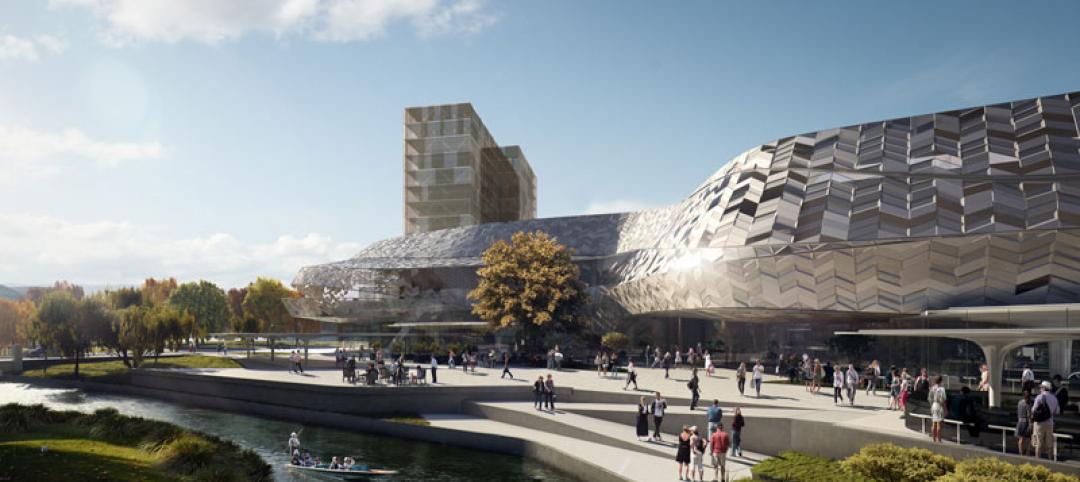The AIA Foundation, along with the American Institute of Architects (AIA) and the Association of Collegiate Schools of Architecture (ACSA), has announced the establishment of the AIA Design & Health Research Consortium to help fund basic research into the growing influence design has on public health.
The consortium will be comprised of like-minded university teams consisting of experts in architecture and public health. AIA Foundation and its partners will work with consortium members to identify and develop opportunities for funded research, publication, and other resources in design and public health, with the idea that coordination and collaboration will benefit the consortium, its partners and the design and health professions.
The AIA Foundation has set a deadline of October 15, at 11:59 pm PDT for receiving qualification proposals from interested academic institutions. Selection of the schools will be made by late November.
“In the last ten years, we have accepted that healthy places are sustainable places; that the optimal building of this century will be one that minimizes its ecological footprint while promoting human health and well-being,” said AIA Foundation Executive Director Sherry-Lea Bloodworth Botop. “This consortium will help lay the foundation for making this vision a reality.”
“Good design can improve our well-being, whether in our homes, schools, workplaces, or where we play,” said AIA CEO Robert Ivy, FAIA. “By careful consideration of the human condition and its surroundings, architectural design promotes well-being, mental health and performance.”
The launch of the consortium is the latest effort by the AIA Foundation and its partners to expand the growing body of research into the design and health nexus. In April, the AIA Foundation, AIA, and ACSA held a design and health-focused summit attended by more than 100 design and public health officials. In June, the AIA and McGraw-Hill Construction announced a ground-breaking survey on the attitudes of architects, public health officials and human resource professionals on whether design techniques can make a difference in improving the health of the American public.
The AIA has organized its design and health initiative around six evidence-based approaches that architects can influence through design practices and policies at the building and urban scale. These six approaches—environmental quality, natural systems, physical activity, safety, sensory environments, and social connectedness—recognize that the physical environment creates health opportunities and facilitates positive health behaviors. The AIA’s Design & Health Leadership Group (DHLG) has convened a research working group to manage the review of qualifications submitted by member candidates. Following an open request for qualifications, the working group will recommend up to ten members working across these six research areas.
Over a three year period, the AIA Foundation and its partners will provide institutional support and capacity building for inaugural consortium members to promote collaboration through local and national partnerships; enable the sharing of knowledge through private listserv activity, conference calls, and face-to-face events; and provide a new portal on AIA.org for Members to share research activity. Whenever appropriate, the AIA Foundation and its partners will promote the activities of the consortium with potential funders.
The full Request for Qualifications, application form, and other resources are available here.
Related Stories
| Oct 8, 2014
New tools for community feedback and action
Too often, members of a community are put into a reactive position, asked for their input only when a major project is proposed. But examples of proactive civic engagement are beginning to emerge, write James Miner and Jessie Bauters.
| Oct 8, 2014
Massive ‘healthcare village’ in Nevada touted as world’s largest healthcare project
The $1.2 billion Union Village project is expected to create 12,000 permanent jobs when completed by 2024.
| Oct 8, 2014
First look: Woods Bagot unveils plans for new Christchurch Convention Center
The locally-inspired building is meant to serve as a symbol of the city's recovery from the earthquake of 2011.
| Oct 8, 2014
Denver transit project wins design-build Project of the Year honor
The Denver Union Station Transit Improvement Project is among 25 projects honored by the Design Build Institute of America for excellence in design-build project delivery.
| Oct 7, 2014
Analysis: Student loans will cost housing industry $83 billion in 2014
More than 410,000 single- and multifamily home sales will be lost in 2014 due to student loan debt, according to analysis by John Burns Real Estate Consulting.
Sponsored | | Oct 7, 2014
Boost efficiency with advanced framing
As architects continue to search for ways to improve building efficiencies, more and more are turning to advanced framing methods, particularly for multifamily and light commercial projects.
| Oct 7, 2014
Economic gains are rallying rents in Raleigh, N.C.
The greater Raleigh, N.C., market appears to be getting back on its feet again, which is good news for rental property owners.
| Oct 7, 2014
Structured, not stirred: The architecture of cocktails [infographic]
In this downloadable graphic, technologist Shaan Hurley dissects 37 cocktails and analyzes their architectural makeup.
| Oct 6, 2014
Moshe Safdie: Skyscrapers lead to erosion of urban connectivity
The 76-year-old architect sees skyscrapers and the privatization of public space to be the most problematic parts of modern city design.
| Oct 6, 2014
Houston's office construction is soaring
Houston has 19 million square feet of office space under construction, 54% more than a year ago, and its highest level since the booming 1980s, according to local news reports.















